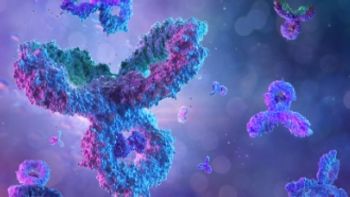
Monitoring of Ozone-Depleting Substances (ODS) with Pre-Concentration and GC–MS.
Webinar Date/Time: Tue, Oct 31, 2023 10:00 AM EDT
Join us for a revealing webcast as we delve into the critical role of background measurements in tracking ozone-depleting substances (ODS) and greenhouse gases (GHGs). Discover the groundbreaking MEDUSA system and Markes TD technology shaping environmental monitoring for a sustainable future.
Register Free:
Event Overview:
In 1974, CFCs were first identified as major contributors to stratospheric ozone depletion. Since that time, they, and other species with ozone depletion potential (ODP), have been controlled and restricted under the Montreal Protocol and its amendments.
Background measurements of ODS and GHGs are crucial to understanding global averages of key species and enforcing the restrictions placed on manufacture. Measurement at background locations typically require very large volumes of air to be pre-concentrated and samples should ideally be taken directly from the atmosphere into the instrument for high resolution data. This requires specialised instrumentation developed for that purpose—the MEDUSA system.
As calls for more monitoring of ODS grow, focus is also being placed on understanding sources. Releases of man-made species are highest in urban areas and from industry but samples from this environment don’t require the same level of sensitivity.
In this presentation study, we look at the technology used, and data generated, from monitoring at key background locations. It will also examine the Markes TD systems that can be applied to monitoring both background and industrial/urban environments.
Key Learning Objectives:
- How monitoring of ozone depleting substances is carried out at the global scale through networks such as AGAGE
- About the MEDUSA system and the data it generates
- How Markes TD systems are being used for monitoring of ODS
- Developments in standard methods for monitoring ODS
Who Should Attend:
- Researchers interested in monitoring ozone depleting substances
- Laboratory and project managers in specializing in air samples
- Environmental consultants
Speakers:
Dr. Dickon Young
Director
Terra Modus Consultants
Since completing his Ph.D. in Atmospheric Chemistry at the University of Bristol, Dr. Dickon Young worked briefly as a post-doctoral researcher before setting up his own company Terra Modus Consultants Ltd. The primary area of his work is as a member of the Advanced Global Atmospheric Gases Experiment (AGAGE) team. He is the station manager for the Ragged Point research station in Barbados as well as helps with technical and computer expertise for Mace Head in Ireland. Maintaining the suite of instruments and their internationally recognised timeseries has led to his selection as a contributing author on the recent World Meteorological Organization's (WMO) “Scientific Assessment of Ozone Depletion: 2022”. He also works with the United Nations Environment Program (UNEP) on a pilot study as part of their current “Closing the Gaps” project.
Hannah Calder
Environmental Air - Market Development Manager
Markes International
Hannah Calder is Markes International’s Environmental Air Market Development Manager, specialising in the application of thermal desorption in environmental air monitoring. Hannah joined Markes International’s global team of technical experts in 2013 following her master’s degree in chemistry obtained from Cardiff University.
Hannah is active in the development of analytical standards for ambient and indoor air monitoring internationally through ASTM and CEN. She has comprehensive knowledge on the use of Thermal Desorption as an analytical tool for air analysis and has recently worked on projects for monitoring ozone depleting substances, ozone precursors, air toxics, and PFAS.
Register Free:
Newsletter
Join the global community of analytical scientists who trust LCGC for insights on the latest techniques, trends, and expert solutions in chromatography.





